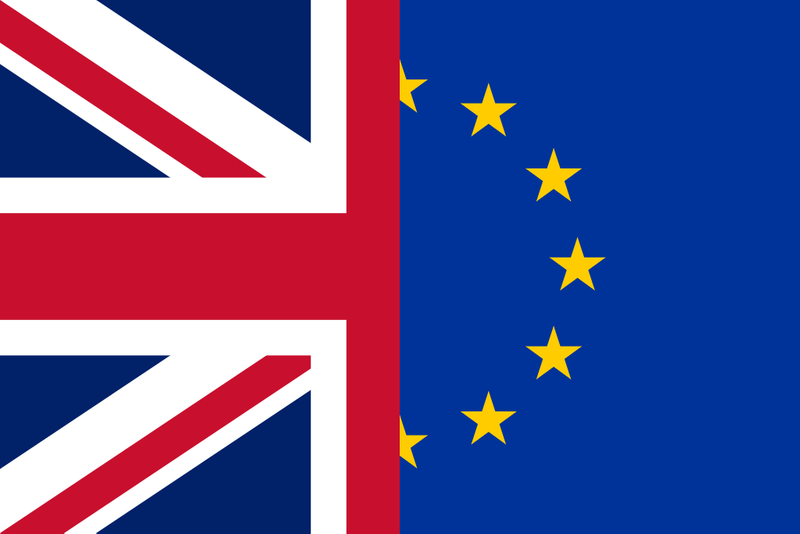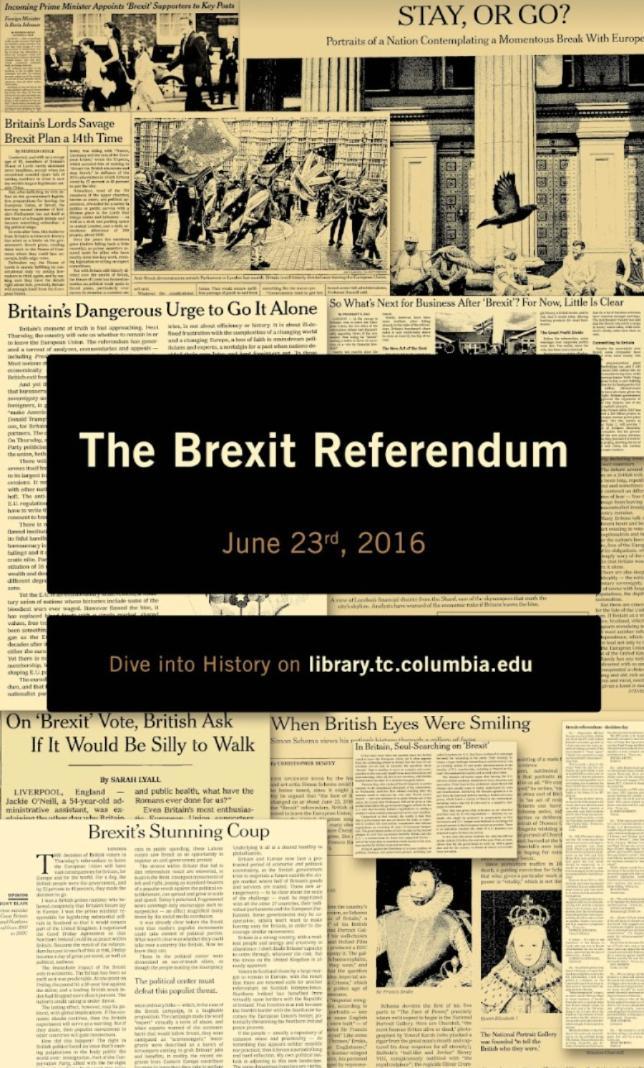Today In History: The Brexit Referendum

On June 23rd, 2016 the United Kingdom voted in a referendum to withdraw membership from the European Union. While 51.9% of the vote was in favor of withdrawal, 48.1% was opposed. The controversial decision signified the first time a country decided to leave the European Union, a coalition of European countries dating back to 1951 that was formed for political and economic reasons to ensure freedom, democracy, equality, and to promote peace and stability through shared laws and open borders.
The British exit, known as "Brexit", led to the resignation of Prime Minister David Cameron who was succeeded by Theresa May, Conservative Party leader and the UK's second female prime minister after Margaret Thatcher. May began the process of withdrawal, until London mayor and then Foreign Secretary Boris Johnson succeeded her as Prime Minister. The official withdrawal took place on January 31st, 2020, with sovereignty, immigration, the economy, anti-establishment, and other factors influencing the historic act which originally was planned as a two-year withdrawal process. The Covid-19 pandemic and resistance to withdrawal, evident by mass demonstrations, particularly among the younger population, led to further complexities. Neutrality continues among some European countries, like Switzerland and Norway, while the European Union now comprises twenty-seven member countries whose citizens can freely move goods, capital, services and people between member states.
Arguments for Brexit include British control of democracy, borders and waters; command of British currency and planned economy; stronger national pride; and general freedom to regulate in more proportionate and flexible ways for Britain's citizens.
The following articles are drawn from Proquest Historical Newspapers, which informs and inspires classroom teaching and learning.
- Lyall, S. (2016, Jun 03). On 'Brexit' Vote, British Ask If It Would Be Silly to Walk. New York Times (1923-)
- Britain's Dangerous Urge To Go It Alone. (2016, Jun 17). New York Times (1923-)
- Leahy, J., Guinness, P., Loingsigh, L. O., McCarthy, J., & Doherty, J. (2016, Jun 23). Brexit Referendum--Decision Day. The Irish Times (1921-)
- Erlanger, S. (2016, Jun 23). Stay, Or Go?: Portraits Of a Nation Contemplating a Momentous Break With Europe. New York Times (1923-)
- Blair, T. (2016, Jun 26). Brexit's Stunning Coup. New York Times (1923-)
- Castle, S., & Sewell, C. (2016, Jul 14). Incoming Prime Minister Appoints 'Brexit' Supporters to Key Posts: Foreign Minister Is Boris Johnson. New York Times (1923-)
- Rao, P. S. (2016, Aug 22). So What's Next For Business After 'Brexit'? For Now, Little Is Clear. New York Times (1923-)
- In Britain, Soul-Searching On 'Brexit'. (2016, Sep 03). New York Times (1923-)
- Benfey, C. (2016, Sep 25). When British Eyes Were Smiling: Simon Schama Views His Nation's History Through a Gallery Of Faces. New York Times (1923-)
- Castle, S. (2018, May 12). Britain's Lords Savage Brexit Plan a 14th Time. New York Times (1923-)

Tips:
- Black, Jeremy. A History of Britain, 1945 to Brexit. Bloomington, Indiana: Indiana University Press, 2017. e-book
- Habermann, Ina. The Road to Brexit: a Cultural Perspective on British Attitudes to Europe. Ed. Ina Habermann. Manchester: Manchester University Press, 2021. e-book
- Paladini, Stefania, and Ignazio Castellucci. European Security in a Post-Brexit World. Bingley, England: Emerald Publishing, 2019. e-book
- Staiger, Uta, and Benjamin Martill. Brexit and Beyond Rethinking the Futures of Europe. London: UCL Press, 2018. e-book
Images:
- Flag of Brexit, Courtesy of Wikimedia Commons
- Special News Slide, Courtesy of the Gottesman Libraries
**
Need to keep current, look to the past, teach a topic? The Everett Cafe features daily postings of news from around the world, and also promotes awareness of historical events from an educational context. Be sure to check additional Cafe News postings on the library blog.

